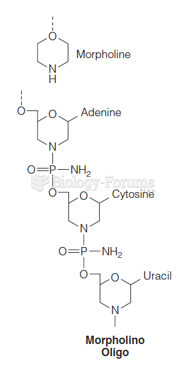|
|
|
The National Institutes of Health have supported research into acupuncture. This has shown that acupuncture significantly reduced pain associated with osteoarthritis of the knee, when used as a complement to conventional therapies.
In Eastern Europe and Russia, interferon is administered intranasally in varied doses for the common cold and influenza. It is claimed that this treatment can lower the risk of infection by as much as 60–70%.
All patients with hyperparathyroidism will develop osteoporosis. The parathyroid glands maintain blood calcium within the normal range. All patients with this disease will continue to lose calcium from their bones every day, and there is no way to prevent the development of osteoporosis as a result.
Signs and symptoms of a drug overdose include losing consciousness, fever or sweating, breathing problems, abnormal pulse, and changes in skin color.
The top 10 most important tips that will help you grow old gracefully include (1) quit smoking, (2) keep your weight down, (3) take supplements, (4) skip a meal each day or fast 1 day per week, (5) get a pet, (6) get medical help for chronic pain, (7) walk regularly, (8) reduce arguments, (9) put live plants in your living space, and (10) do some weight training.
 The Abecedarian study was designed to help very low-income African American children prepare for ...
The Abecedarian study was designed to help very low-income African American children prepare for ...
 A compression gauge designed for the higher compression rate of a diesel engine should be used when ...
A compression gauge designed for the higher compression rate of a diesel engine should be used when ...
 The blue sticker on the rear of this vehicle indicates that it is designed to use compressed natural ...
The blue sticker on the rear of this vehicle indicates that it is designed to use compressed natural ...




